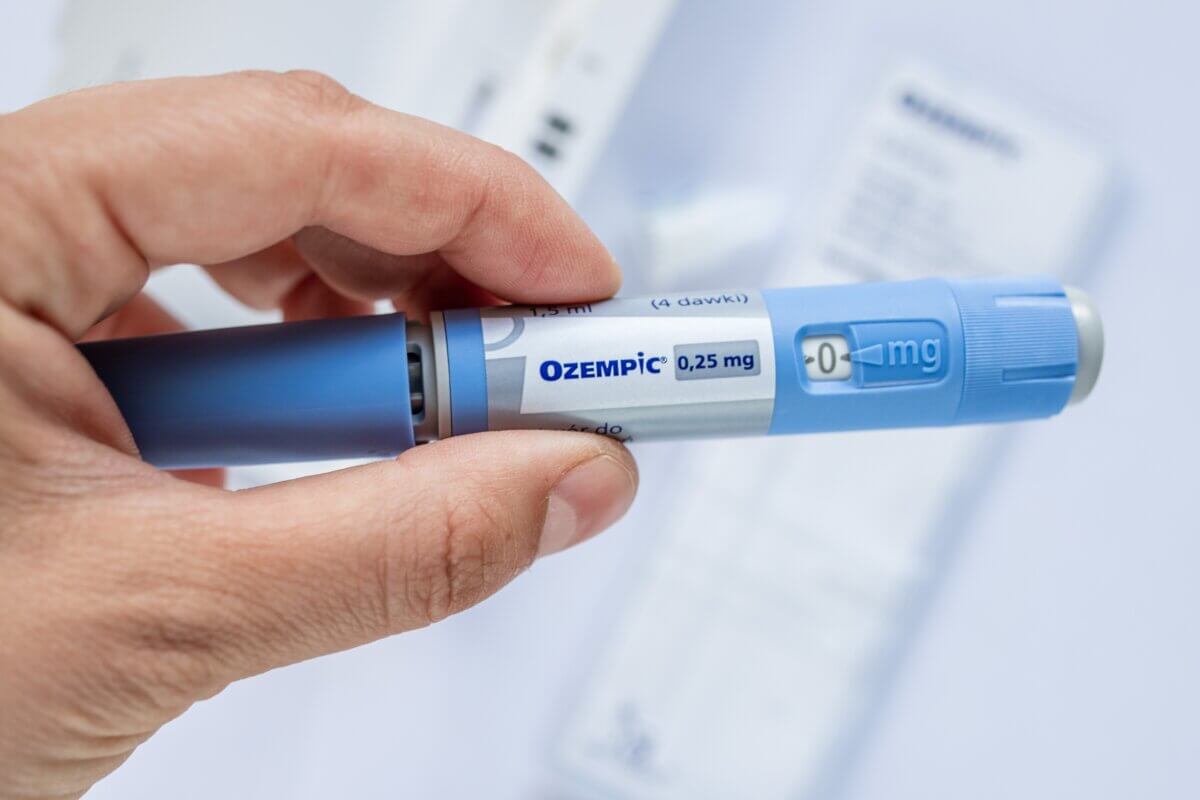There’s a saying in medicine, “don’t be the first to try something new, and don’t be the last to try something new.” When it comes to obesity, however, are the latest and most popular weight loss drugs right for you? Unfortunately, doctors are still trying to figure out the best advice to give to the public. Here’s what you should know about some of the leading options.
Just like the brand name Kleenex has become the moniker for all things facial tissues, Ozempic has become the go-to label for a group of drugs called glucagon-like peptide-1 (GLP-1) receptor agonists. The U.S. Food and Drug Administration (FDA) approved Ozempic in 2017 for the management of blood sugar in Type 2 diabetes, coronary artery disease, and heart failure patients.
It was by serendipity that Ozempic users found that taking the drug led to a significant amount of weight loss along with achieving better blood sugar control. When consumers heard “WEIGHT LOSS” however, the drug’s intended benefits faded into the background. Suddenly pharmacies couldn’t keep it on the shelves. Although Ozempic was not FDA-approved for weight loss, it isn’t unusual for doctors to prescribe a drug off-label – for a purpose other than what the FDA recommends. There is still a shortage of Ozempic, and no one seems to know when that will be resolved.

One drug delivers promising results for children
In 2021, Novo Nordisk’s Wegovy received FDA approval specifically for weight loss. It became headline news when the manufacturer reported that its users lost 15 to 18 percent of their body weight during clinical trials. That’s about 12 percent more than people who didn’t take the medication. Later, the FDA approved the drug for chronic weight management in adolescents over the age of 12. Adolescents lost about 16 percent of their body weight during clinical testing.
Medical professionals also expect Eli Lilly’s Mounjaro to receive FDA approval as a weight loss drug later in 2023.
Now, one of the greatest challenges in medicine is how to use these drugs effectively, responsibly, and safely, in the best interests of patients. We can expect some high-energy and even volatile debates. There are 115 million obese adults and children in the U.S., many more overweight individuals with heart disease or diabetes, and millions more are vulnerable to developing such high-risk conditions.
Some physicians want to prioritize GLP-1 drugs for high-risk patients with diseases associated with obesity. Other doctors and specialists want to use them for a broad range of patients, along with sensible dieting and exercise. Some suggest thorough individualized assessments and tailored therapy.
Obesity specialists have widely varying opinions on how to use these new drugs
One says she might prescribe the drugs on a patient’s first visit, if they already tried at least three months of diet and exercise. Another says that lifestyle interventions for six months should be a minimum before using a drug.
“No one at all is worried about the overuse of those,” says Dr. Caroline Apovian, co-director of Brigham and Women’s Hospital’s Center for Weight Management, in a report by Reuters. “In fact, people are claiming that statins should be used by everybody because you want to get the (bad cholesterol) down as low as possible.”
Apovian co-authored the previous guidelines on obesity management issued by the Obesity Society and the Endocrine Society.
The Obesity Society and the American Association of Clinical Endocrinology (AACE) plan to put out new guidelines for the management of obesity in early 2024. The Endocrine Society plans an update of its weight loss drug guidelines in 2025.
According to Reuters, Novo Nordisk and Eli Lilly, which provide some funding to The Obesity Society and The Endocrine Society, and which partner with AACE, would not say whether they were working with the medical associations on the creation of new guidelines. What seem to be clear conflicts of interest and lack of transparency call for vigilance and discernment from the medical community and the public on the appropriateness of new guidelines.
U.S. health insurance companies must use medical guidelines, among other data, to deciding whether to pay for treatment. Wegovy, which costs about $1,300 a month, currently does not have wide coverage from private health plans.
Guidelines are not law
The use of these guidelines is difficult to monitor. These are powerful drugs and potential consequences are great, even life-threatening. Physicians should act in the best interests of their patients, including responsible prescribing. It is not a physician’s job to make their patients like them, or to give patients what they want. Disgruntled patients can become belligerent. They may leave their doctor’s practice to find a doctor who will give them what they want. Unfortunately, they’ll find one. Physicians need to hold each other accountable.
Search “Ozempic” for an alarming wake-up call! Countless opportunists are offering doctor “visits” by phone, to be followed by a prescription for a weight loss drug. An introductory call is $100 to $200, then the businesses supply the drugs for about the same cost, on a monthly subscription plan. The pandemic may have contributed to the tolerance of such practices by making telehealth mainstream. So, where should the medical community draw the line on what is safely manageable using telemedicine?
No one knows the long-term effects of GLP-1 receptor agonists – helpful or harmful. There is a trend towards regaining the lost weight.
“One of the biggest challenges in obesity medicine is you’ve got lots of different options that people can potentially pursue,” notes Dr. Jamy Ard, an obesity researcher at Wake Forest University, heading the Obesity Society’s guidance project, “and the evidence base for a lot of them is shaky, at best.”
Dear consumers – please be cautious. Each of you must be your own best advocate for your personal health.

